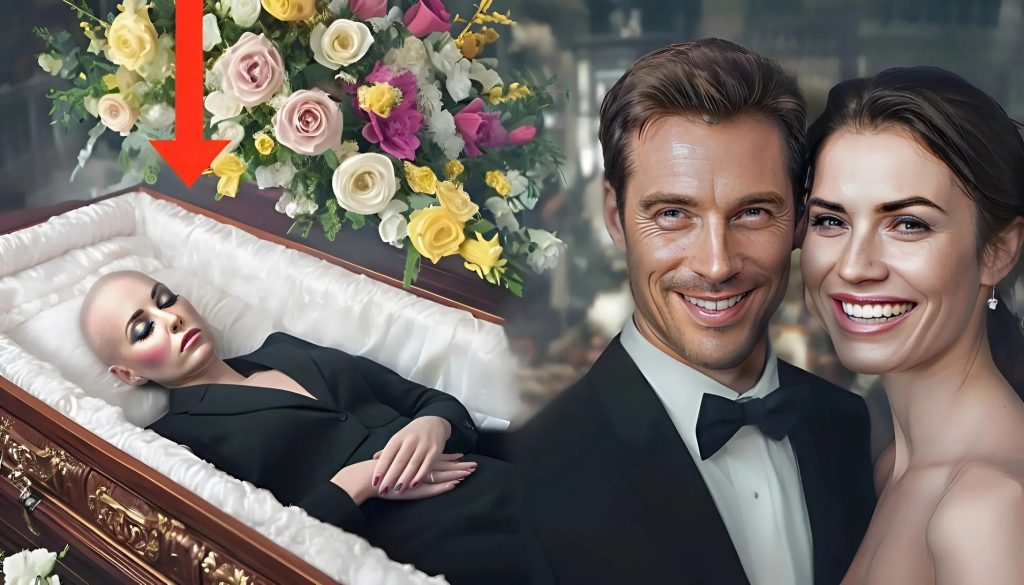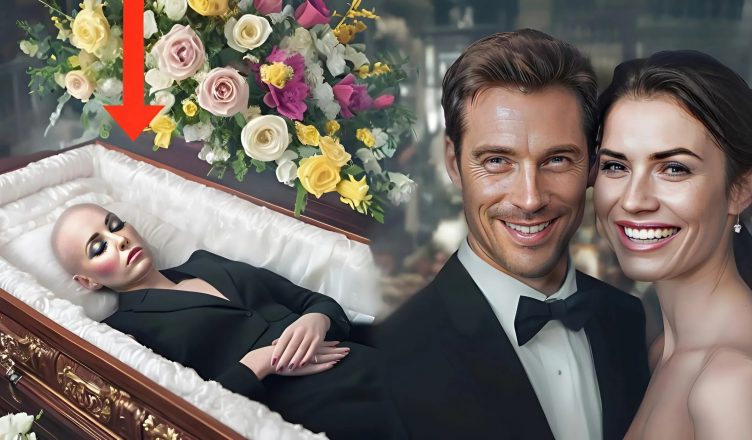There are stories that don’t just stay with you — they haunt you. They take root somewhere between the moral compass and the gut, refusing to be dismissed as fiction or curiosity. This is one of those stories. It’s not about justice in the legal sense, but about that strange force we often call karma — and how, sometimes, life itself delivers poetic symmetry.
Daniel and Elena were, by all appearances, an enviable couple. They met in their twenties, got married in their early thirties, and seemed to age into a comfortable domesticity that others longed for. No dramatic public displays of affection, no fiery fights — just a quiet, enduring partnership. Elena taught literature at a local college, always with a novel tucked under her arm. Daniel was sharp, strategic, and steadily rising through the ranks of a logistics firm. They were, as friends said, “a lock.”
Until Elena got sick.
The Cracks Beneath the Vows
The diagnosis came like a storm in still air: stage two breast cancer. Not a death sentence, doctors assured her — but it would be a long road of surgery, chemotherapy, and emotional turbulence. For the first few weeks, Daniel was present. Dutiful. Encouraging. He rearranged meetings, sat beside her in waiting rooms, and even buzzed his hair when hers began falling out.

But soon, the rhythm of appointments and medication soured the routine they’d known. Daniel began spending more time at the office. He rationalized it as a need to support her financially. But it wasn’t long before the truth unraveled: Daniel had found comfort elsewhere — in the arms of a much younger coworker named Mia.
What began as whispered lunches turned into overnights. Daniel was no longer just absent; he was vanishing from Elena’s life. When confronted, his response was clinical, almost rehearsed. “I need to feel alive,” he said. “I can’t drown in this.”
And with that, he left.
The Legal and the Emotional Fallout
Friends were stunned. Family members were divided. Elena, ever composed, did not respond publicly. She focused on her treatment, her students, and the quiet companionship of her books. Despite the abandonment, she refused to let bitterness consume her. Those who visited her during chemo sessions said she radiated a calm strength that made others ashamed to pity her.
Meanwhile, Daniel moved in with Mia. He explained away his decision as “self-preservation,” as if loyalty were conditional. His social circle thinned. Some silently judged; others politely withdrew. But Daniel didn’t care. He had moved on — or so he thought.
Then came the day of the inheritance.
Daniel’s uncle, a wealthy entrepreneur with no children of his own, had passed away. Everyone expected Daniel to be the primary beneficiary. After all, he was the only nephew, and the two had always been close. The inheritance — a sizeable estate, company shares, and multiple properties — was to be unveiled at a formal reading of the will.
The Twist No One Saw Coming
Daniel arrived in a tailored suit, Mia clinging to his arm. He wore the confidence of a man about to step into a new life, one paid for in legacy.
But when the attorney opened the envelope and began reading, Daniel’s expression shifted.
The bulk of the inheritance, including the estate, the shares, and a significant cash endowment, had been left to Elena.
Stunned silence filled the room. Even Elena, who had quietly taken a seat in the back row at the lawyer’s request, looked bewildered. She had not expected this.
The will contained a personal letter from the uncle, explaining everything.
“Daniel, you were once someone I admired — diligent, promising. But a man is revealed not in comfort, but in crisis. Elena stood by you, quietly, loyally. When you walked away, you lost more than a marriage. You lost my respect. I choose to reward strength of character, not charm in times of ease.”
The attorney handed Elena a folder with documents. Daniel sat motionless, Mia wide-eyed beside him, unsure whether to comfort or recoil.
Aftermath: What Remains
In the weeks that followed, Daniel tried to challenge the will, but the legal framework was airtight. Elena, true to her character, made no public statements. She quietly declined interviews, saying only, “I was surprised. But I’m grateful — not for the money, but for the dignity with which I was treated.”
She used part of the inheritance to fund a scholarship program for young women studying literature and donated a wing to the oncology department that treated her. The plaque bears no name — only a quote from Emily Dickinson: “Hope is the thing with feathers that perches in the soul.”
Daniel’s career stalled. Mia eventually left. And though he remains financially stable, the legacy he counted on slipped through his fingers — not by theft, but by choice. A choice made not in a courtroom, but in life’s moral ledger.
A Story Beyond Scandal
This isn’t just a tale of betrayal and retribution. It’s about the unseen consequences of our decisions. About how
